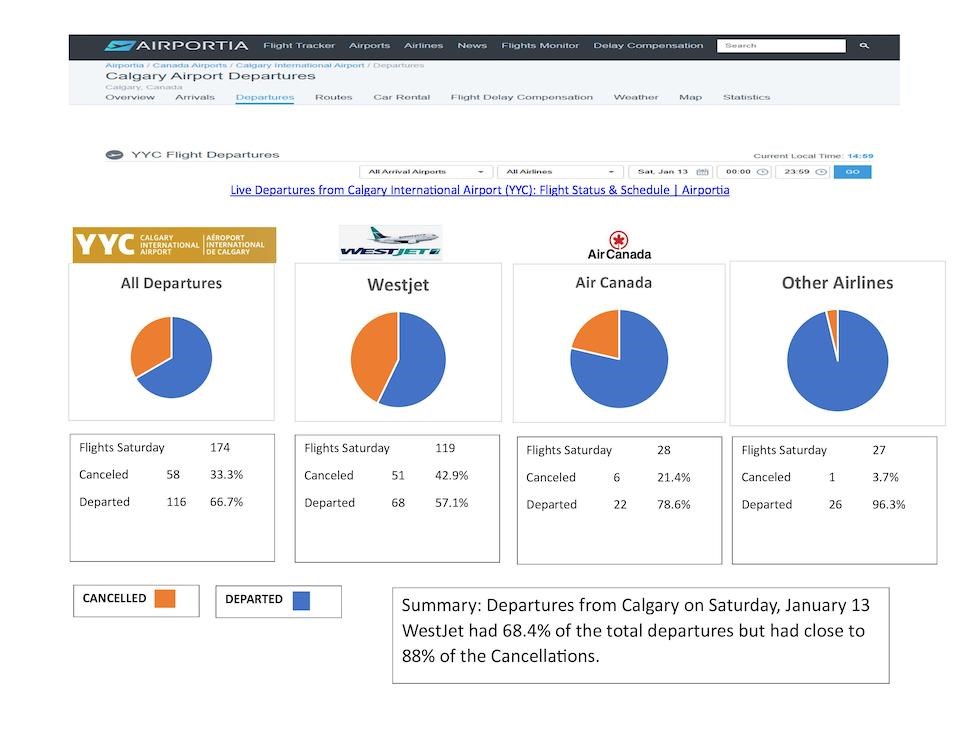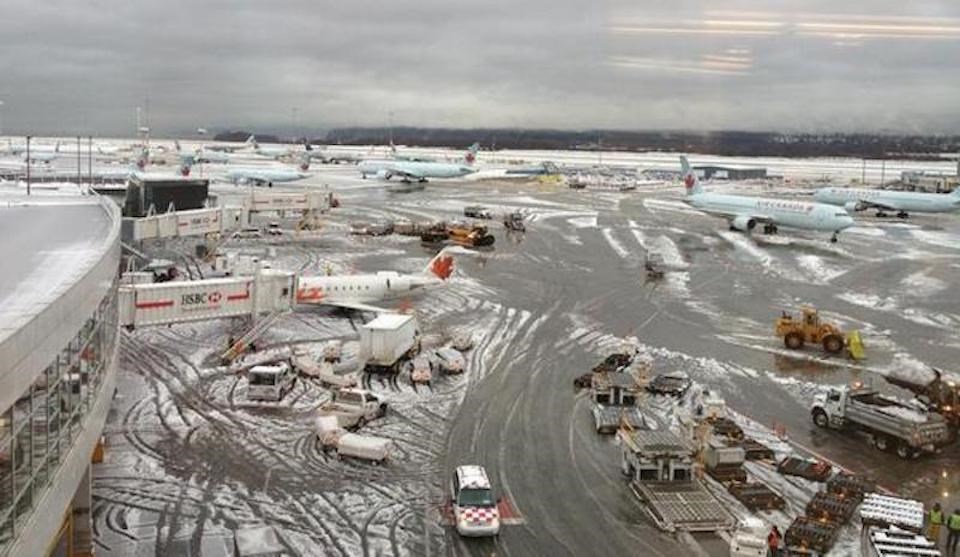Canada's biggest airlines may have been misleading travellers about their rights when cancelling or delaying flights due to weather, says a prominent air passenger rights advocate.
Over the past week, airports across the country have seen hundreds of cancellations due to winter storms. Most notably, WestJet cancelled upwards of 400 flights due to extreme cold across the Prairies.
WestJet, along with Canada's largest airline, Air Canada, implemented flexible change policies for travellers affected by the extreme weather. They also provided alternative booking arrangements for travellers who were caught in the Vancouver storm.
But passengers need to ensure airlines are following Canada's air passenger rules, says one industry expert.
Gabor Lukas, president and founder of the Air Passenger Rights group, said WestJet greatly "exaggerated" the impact of the extreme cold on its operations. At Calgary International Airport (YCC), for example, WestJet cancelled a whopping 51 flights on Saturday, Jan. 13; 68 of its flights departed. While only 22 Air Canada flights departed, it only had six cancellations.
WestJet spokesperson Madison Kruger said the extreme cold and intermittent precipitation that primarily affected Alberta had a "significant impact" on the carrier's operations, crews and partners.
"Despite preparation efforts, temperatures dropped below a threshold at which de-icing fluid is effective and rendered our equipment such as bridges and fuel stations inoperable. Additionally, to ensure safety above all, we had to limit the time our ground crews and service partners were working outside," she told V.I.A.
While the inclement weather was experienced across the Canadian aviation industry, WestJet is based out of Calgary, meaning its network was significantly impacted "over five days of extreme temperatures."
The travel agent 'myth'
Lukas says the airlines misled passengers about what recourse they have for re-booking flights.
In its Vancouver International Airport (YVR) storm advisory, WestJet said customers may be eligible for flexible changes. However, it also noted that travellers who booked through a travel agent, online booking agency, or a corporate travel arranger, should contact them directly.
Not only is it unrealistic to assume that a travel agent will be open or available to make changes in a timely fashion, but the airline also has a "legal obligation" to make them for the passenger, Lukas explained.
"Airlines have been using the fact that a ticket was bought through a travel agent as a false excuse for turning away affected passengers in the case of a flight disruption," he said.
"The law clearly imposes the responsibility on the airline to offer alternate transportation."
While a travel agent may still contact an airline on your behalf, the "contract of carriage" remains between the traveller and the airline.
"It is a convenient excuse for WestJet to send passengers away by telling them that because they booked via an agent, they cannot help them. But it holds no water."
In 2016, the Federal Court of Appeal ruled that the "involvement of a reseller does not obviate the requirement that licensees comply with all of the obligations imposed upon them."
WestJet did not comment on why it had a note advising customers to contact travel agents due to inclement weather on its YVR page.
But the airline will "provide re-accommodation options for all passengers, regardless of booking channel" if "irregular operations" cause a flight disruption within 24 hours of departure," said Kruger.
What options do I have if my flight is cancelled or changed due to the weather?
When a flight is cancelled due to weather, the airline must provide travellers with alternative transportation on its network or on one of its airline partners that departs within 48 hours, according to Canada's Air Passenger Protection Regulations.
If a flight through its partners isn't available, the airline must purchase a ticket with a competitor.
In the case of a delay of three hours or more, the airline must provide alternate travel arrangements or a refund to the customer.




